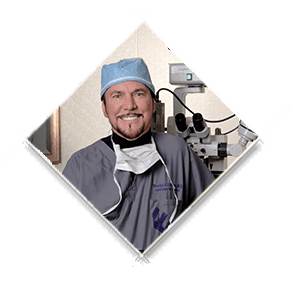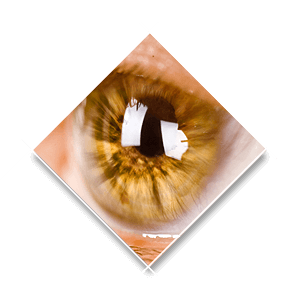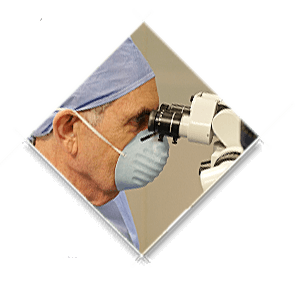What is Age-Related Macular Degeneration?
Age-related macular degeneration (AMD) is an eye disease caused by the deterioration of the macula, the center of your retina (the light-sensitive tissue layer at the back your eye) that allows central vision. When your macula is damaged, you will have difficulty performing daily tasks. Unfortunately, this is the leading cause of vision loss for older adults.
While this disease is often associated with growing older, there are other risk factors that may increase your risk of developing AMD including:
- Presence of the protein vascular endothelial growth factor (VEGF)
- Genetics / family history of AMD
- Females
- Smokers
- Cardiovascular disease
- Light-colored eyes and/or fair skin
- Poor nutrition and/or high cholesterol
- Obesity
- Hypertension
Types of AMD
- Dry macular degeneration (dry AMD): This is the most common form of AMD. It occurs when yellow-colored clumps of drusen form at the center of the retina, causing the areas to become thin and dry.
- Wet macular degeneration (wet AMD): Dry AMD can develop into wet AMD. This occurs when new blood vessels grow under the macula, leaking blood and fluid that damage cells of the retina. Vision loss can be very rapid with this later stage of the disease.
Symptoms of AMD
- Straight lines appear wavy
- Blind spot in central vision
- Blurry or fuzzy vision
These symptoms may be gradual and even go unnoticed. Regular eye exams in Dallas can detect the presence of AMD so early treatment can be started.
At Home Treatments
We may recommend that you preform treatments at home to stay proactive with your macular health.
An Amsler grid is one tool that can detect macular degeneration or other eye diseases. The test is simple, but very effective:
- Put on any type of eyeglasses that you normally wear
- Hold the grid 14-16 inches from your eyes
- With one eye covered, look at the center dot in the grid and make sure none of the lines appear distorted, the boxes appear the same size and you can see all parts of the grid
- This test should be done on each eye separately
ForeseeHome™ is another daily home monitoring system to detect wet AMD. Dry AMD patients simply look into the non-invasive monitor to take a brief test. Data is automatically transmitted to your doctor each day so any changes can be addressed as quickly as possible.
These treatments, along with other at home monitoring, are covered by most insurances.
Lifestyle Changes to Control AMD
AMD cannot be cured, but we offer treatments and can make lifestyle recommendations to slow the progression of the disease.
- Combination of vitamins with high doses of antioxidants and zinc (for dry AMD)
- Injections of medications can prevent development of new blood vessels and reduce leakage from existing blood vessels (for wet AMD)
- Stop smoking
- Make a healthy diet and regular exercise a priority
- Frequent measuring of antioxidant levels
- Supplements as recommended by Vision Quest
BioScan
If you are experiencing any vision problems or want to learn more about age-related macular degeneration in Dallas, contact us today to schedule an eye exam.












